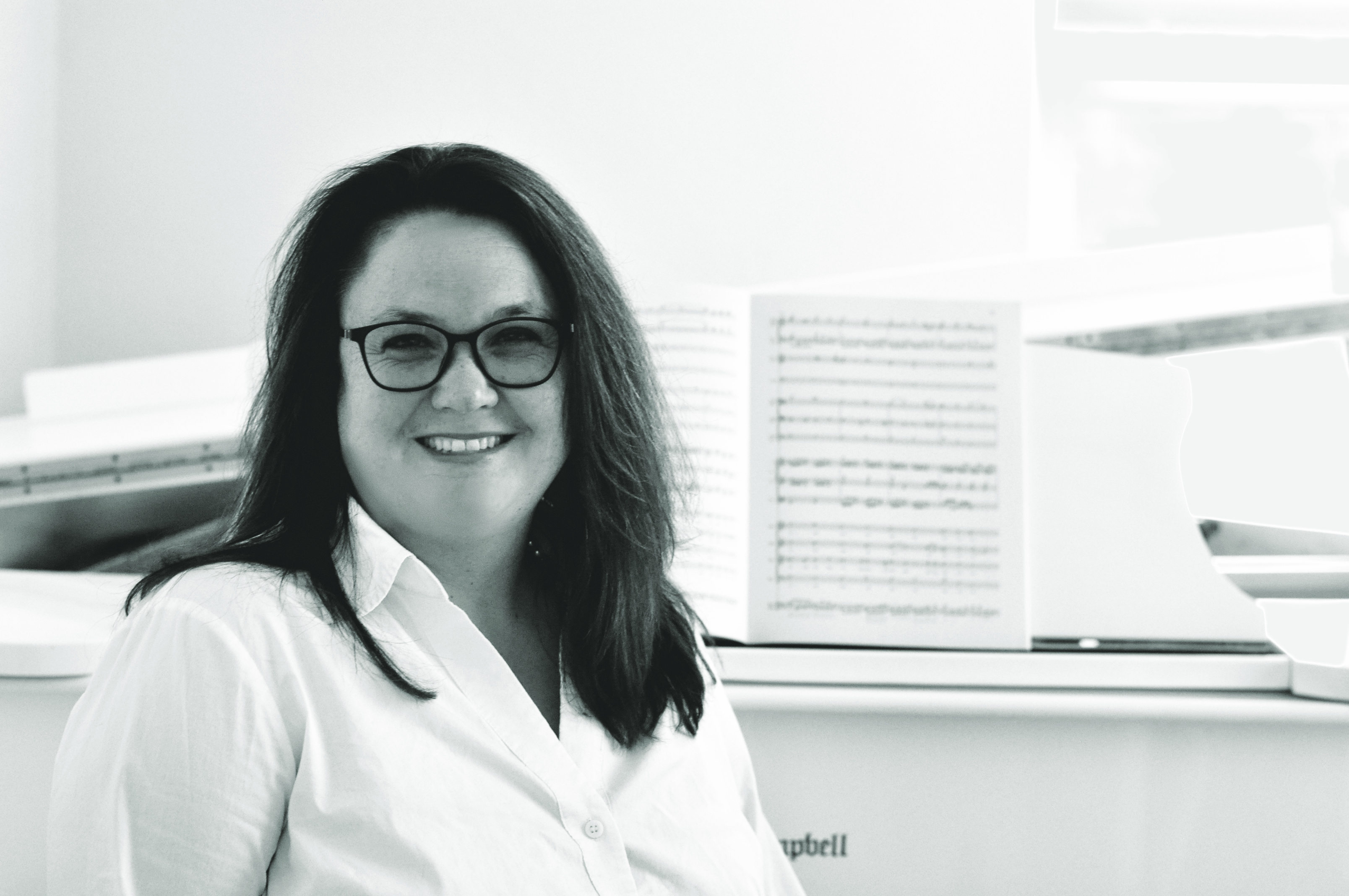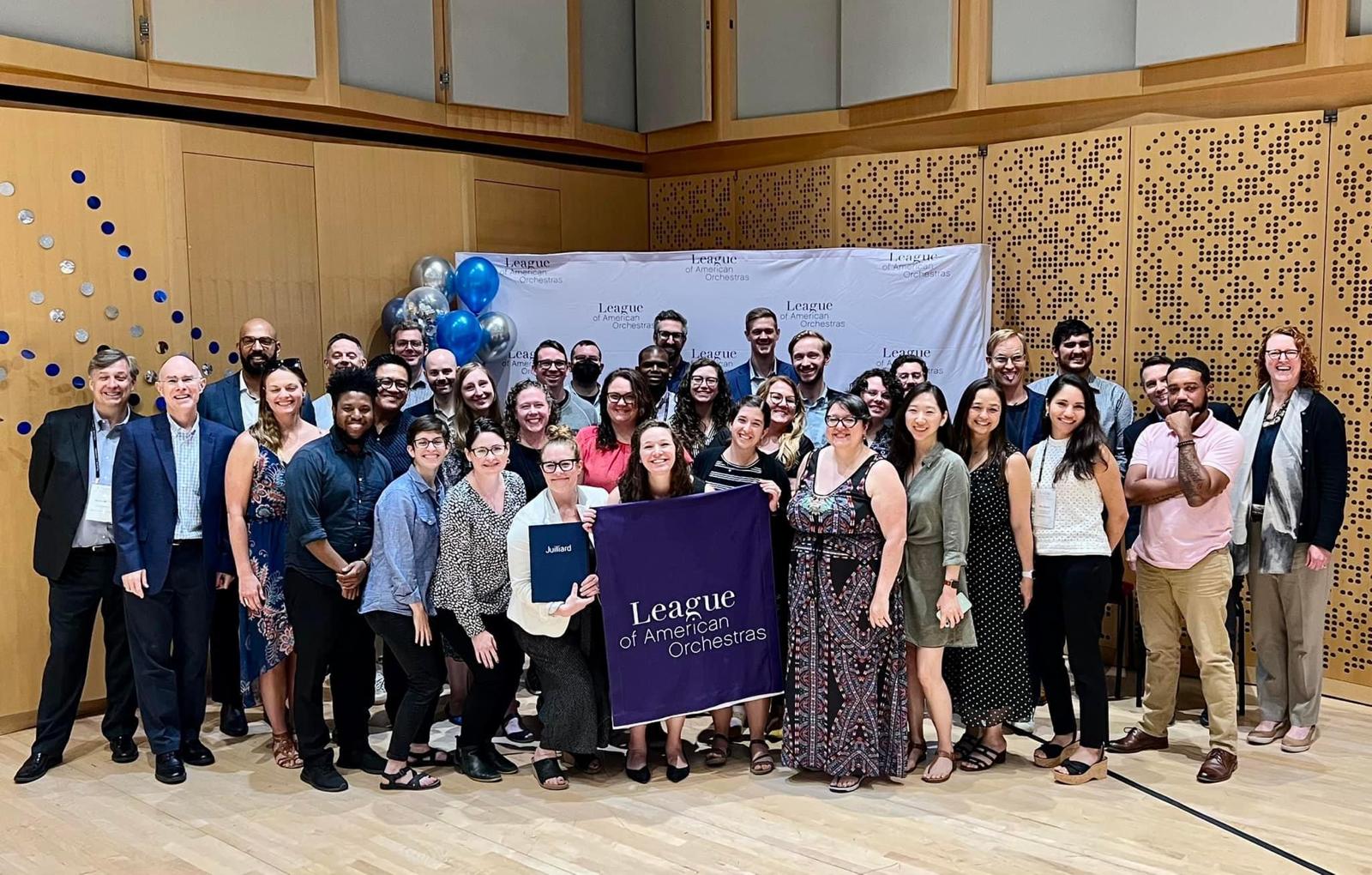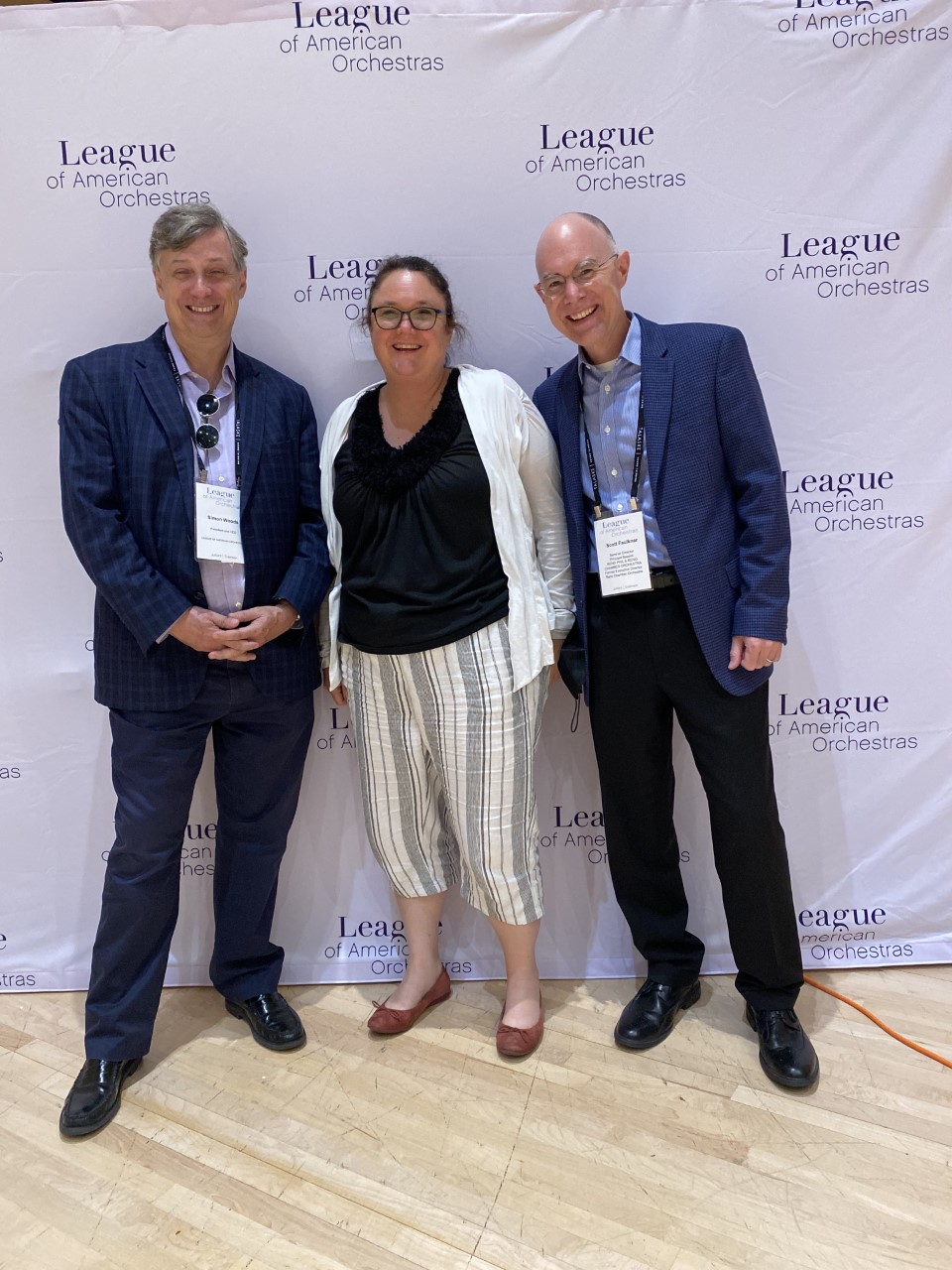By Jenny Darlington-Person, Executive Director of Music in the Mountains
 Adversity - whether it’s a global pandemic, a fire, or the worst winter in 50 years, forces us to reassess our priorities.
Adversity - whether it’s a global pandemic, a fire, or the worst winter in 50 years, forces us to reassess our priorities.
As I write this, I am staring out my office window at snow for what feels like the millionth time this winter and realizing that - yet again - I have mere hours to notify staff, parents, patrons, and donors that we have to cancel another event. Thanks to unprecedented (really sick of that word) snow this winter, we have had to make one live event virtual, postpone one concert, and cancel two others.
After two plus years of COVID-related cancellations and changes, this crazy winter feels like adding insult to injury. Will things ever be normal again?
Maybe not, but I’ve begun to think that might be a good thing. Maybe all of this adversity has something to teach us.
Have you ever put so much pressure on yourself that you become paralyzed into inaction? Considering the industry we work in, or if you are like me, I bet you have.
Normally, writing comes easily for me. I get an idea, which turns into a series of thoughts, an organized structure appears in my mind, and I write it all down. I have written hundreds of documents and easily over a hundred thousand words in my twenty plus year writing career. This process almost never fails me, so when I was asked to write this blog, I enthusiastically accepted.
And that’s where things went awry.
I wanted so much to write this well. To say something useful. To contribute to at least one of the important conversations we have been having over the past 3-5 years, such as: how do we achieve more equity and inclusion on our stages and in our audiences? Or how do we combat declining audiences? And how do we prevent burnout in ourselves, our volunteers, our musicians, and staffs? … I could go on, but I’m sure you get the picture.
In short, I put so much pressure on myself to write something deeply profound and interesting that I suddenly had nothing to write. Cue imposter syndrome. I mean, after all, what do I have to offer to these conversations? I am a lawyer turned executive director from a small town who has never played an instrument - unless you count that year of flute and piano in the fifth grade… which I don’t.
Then it occurred to me that this “cult of perfectionism” is one of the problems we face as an industry. Almost out of necessity, orchestra players have to be practically perfect when they play. It is the only art form where 100 or more people must be in sync performing the same art in the same space at the same time. If such a feat doesn’t require a degree of perfectionism, I don’t know what does.

Perfectionism paralyzes us.
At the beginning of the pandemic, our industry was forced to confront this in an unusual way. In a matter of days, things went from “we need to shut down live operations for a few weeks” to “we have to shut them down for the foreseeable future.” With virtually no warning, we were forced to find a way to be relevant to live music audiences, when we couldn’t produce any live music. I remember talking to leaders of some organizations who literally decided that since recorded music wasn’t nearly as good as live music, they had to shut down operations. Their attitude was “if we can’t do music live, we won’t do it at all.”
I remember having the opposite reaction. The inability to achieve perfection felt freeing for me. We didn’t know if we could make high-quality virtual chorus recordings. We didn’t know if we could teach our more tech-averse audience members to use Zoom and YouTube. We didn’t know if even 50 people would attend our virtual concerts and education talks. What we knew was that our stakeholders were isolated and scared, and that we possessed the tools to help them connect, providing our community with the joy and comfort that only music could provide. So, even though we knew it wouldn’t be perfect, we decided to try anyway. And what we found was that we could do all the things we set out to do.
During the pandemic, I learned that sometimes you have a choice to be perfect or to be present, but you can’t always be both. It’s kind of like when a choir performs. Members can look up from their music and be fully present in the moment but risk missing a few words or notes, or they can be buried in their music and sing every note and word correctly. The technically perfect version may be more objectively correct, but anyone who has ever attended a concert knows they would rather experience connection than hear perfection.
As I have been ruminating (such a good word) on what I learned about our industry during the pandemic. I was reminded of a teacher I had in high school who was hard. He gave us a quiz on the first day of school, and everyday thereafter for the ENTIRE school year. Although at the time it seemed intense and even brutal, in retrospect, he was one of the best teachers I ever had. I think the pandemic was like Mr. Lehman, intense and sometimes brutal, but an excellent teacher, nonetheless.
But the lessons adversity was trying to teach me, didn’t end with the pandemic. As a sort of celebration to the “end” of the pandemic, we decided to try our hand at producing two large outdoor concerts, including Pirates of the Caribbean Live in Concert. The day before we were scheduled to start loading in, there was a fire in a river canyon near our town. Fire crews picked up the fire that night, so we thought we’d be in the clear.
But no such luck. CalFire needed to use our fairgrounds, which was also our venue, as an incident command base. At 6 AM, as trucks were loaded with staging and equipment and ready to go, we were notified we couldn’t have any concerts there. Conditioned not to quit by the pandemic, canceling the concert never crossed my mind. Instead, we started looking at any and all options. We ended up using an indoor venue.
Was it perfect? Not even close. We had to shut off ticket sales early because there were fewer than 500 seats. And the ceiling wasn’t high enough, so the screen blocked the view of most of the orchestra and the conductor. However, for those who attended, it was an unforgettable experience. In fact, the local newspaper’s editor wrote the headline, “A world can use marvels” and he called the concert “the Eighth Wonder.” His story described a unique and wonderful musical experience and a feeling that rippled through the audience. An energy forged by triumph over adversity.
Since an early age most of us have been taught that “anything worth doing is worth doing well,” which sounds great in theory, but really seems to translate so often to: if you can’t do it perfectly and do it better than everyone else, why bother? It is far less painful if you just give up.
But our industry, our nation, and our world now need us more than ever, not to be perfect, but to show up. We need to dust off those participation trophies - and reward ourselves again for just being there. We need to provide a connection that few things besides live classical music can provide: the space to breathe, to relax, and to connect with fellow human beings.
Perfectionism often focuses us on the superficial. The definition of perfection is: “a degree of accuracy or excellence that cannot be bettered.” Perfection is valued in and of itself. But why? To what end?
 Prior to the pandemic, our organization’s mission was focused on providing world-class live classical music. But then the pandemic happened (and let’s not forget the fires and the snow), and we couldn’t do that mission anymore. Adversity forced us to strip away the pretense and ask ourselves - what does our community really need from us? The short answer is that it wasn’t world-class live music. It was connection, comfort, and hope for a better tomorrow.
Prior to the pandemic, our organization’s mission was focused on providing world-class live classical music. But then the pandemic happened (and let’s not forget the fires and the snow), and we couldn’t do that mission anymore. Adversity forced us to strip away the pretense and ask ourselves - what does our community really need from us? The short answer is that it wasn’t world-class live music. It was connection, comfort, and hope for a better tomorrow.
Our new mission is to “inspire, engage and connect our community through extraordinary musical experiences.” We no longer focus on being the best. We’re no longer limited to only producing live music. We don’t need to compete with anyone else to provide great experiences for our audiences. We do our best, and that’s enough.
Music is what we do, but serving our community is why we do it. Adversity taught us to be better, not to be perfect.
About the Author
Jenny Darlington-Person is the Executive Director of Music in the Mountains. Since taking on this role in late 2018, she increased the organization's average annual foundation and government grant giving nearly 400%, raising over $625,000 in under 4 years. Due to her exemplary executive leadership skills, especially during the pandemic, she earned the Association of California Symphony Orchestras’ 2022 Executive Leadership Award. Jenny was also selected to attend and completed a program called Essentials in Orchestra Management at the Juilliard School in New York City in the summer of 2022.
Jenny was born and raised in Nevada County where she currently lives with her husband and four pets. She has been attending MIM concerts since she was a child in the 1980s and became a member of the Chorus in 2006. In 2000, she earned her juris doctorate with honors, Order of the Coif from the University of the Pacific, McGeorge School of Law. She also holds a bachelor’s degree in Women’s Studies and Legal Studies from the University of California, Santa Cruz. Prior to working for MIM, she practiced law for seventeen years in Nevada, Placer, and surrounding counties. She also taught law school for seven years working at both McGeorge Law School and Lincoln Law School teaching courses in business law; research and writing; and appellate and oral advocacy.
About ACSO's Guest Blog Series: Our membership network is full of incredible people with a wealth of life experiences, talents, and diverse perspectives and backgrounds. We want to share their insights, points of view, and wisdom with all of you, as well as raise the voices of individuals who are making a difference for the classical music field. Our guest blog series features people from different communities throughout California and the western US, from different sizes and types of classical music organizations, and with different jobs and responsibilities. They share what they have learned, express their opinions about the sector, and ask challenging questions that will help us shift our thinking and be better advocates for this art form that we all love.

